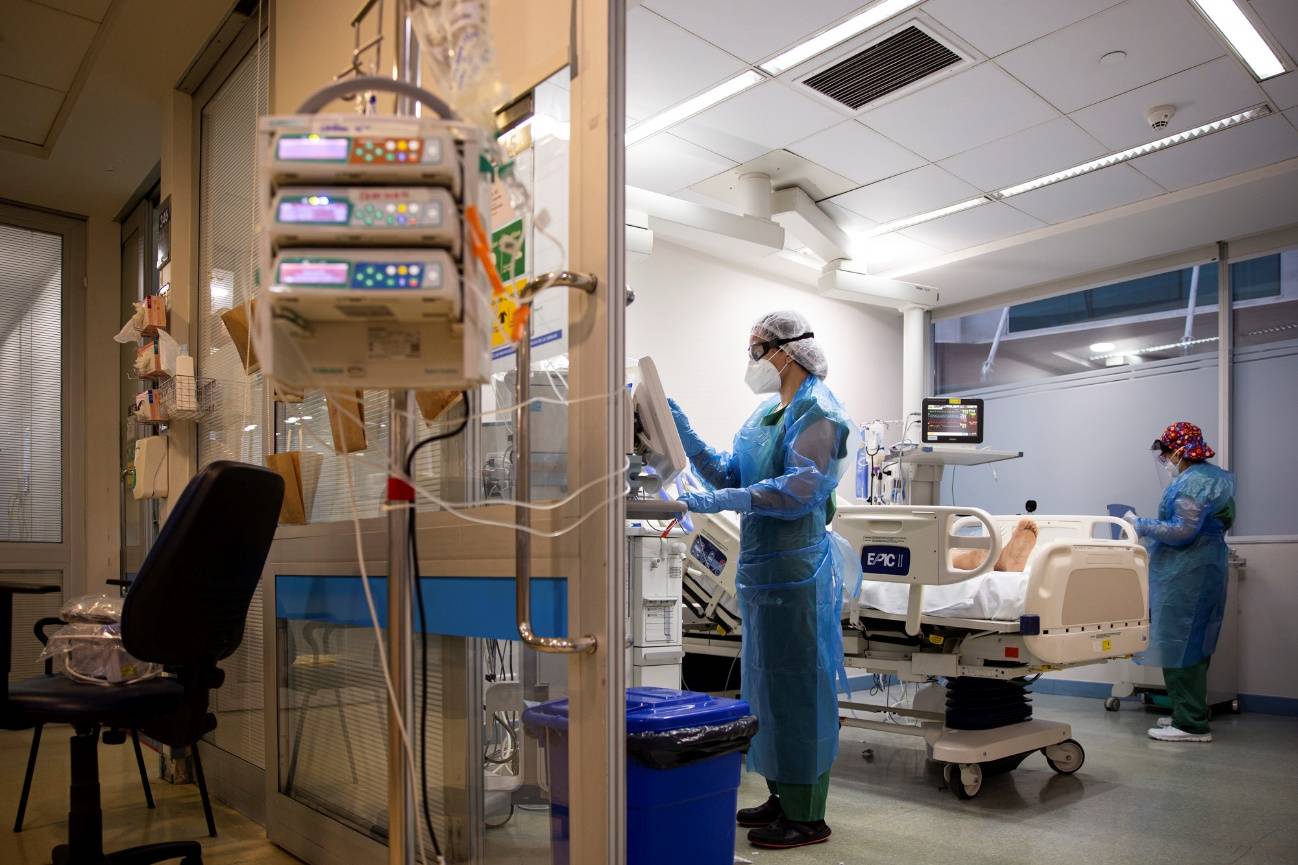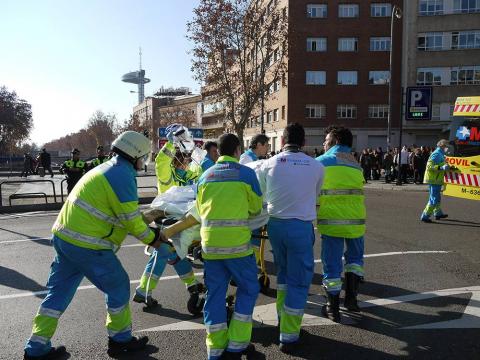Reactions to the creation of new medical specialties, including Emergency Medicine and Clinical Genetics
The former Minister of Health, Carolina Darias, announced a few days ago at a press conference the creation of new medical specialities. The first to "begin the process" will be emergency medicine, which had caused "controversy in different autonomous communities and scientific societies" and for whose implementation a consensus has been reached. It will be followed by other specialities such as Clinical Genetics and Infectious Diseases, as announced in the Senate in February.

Pilar Rodríguez - especialidades médicas EN
Pilar Rodríguez Ledo
First Vice-President of the Spanish Society of General Practitioners and Family Doctors (SEMG)
The Spanish Society of General and Family Physicians (SEMG), in relation to the much debated creation of the speciality of Emergency Medicine, would like to reflect on some aspects:
- As we have repeatedly stated, we are very concerned about the sustainability of the health system in the current conditions, in which we find a strong impact of the consequences of the pandemic on the health system and especially on the first level, already very collapsed and depleted previously by the shortage that we have been showing both in economic investment and in human resources and organisation.
- We believe it is essential to re-establish primary care (PC) with the necessary investments and structures, as this will strengthen the entire health system. A chain is only as strong as its weakest link, and the lack of investment and support has made PC the weakest link in the health system chain.
- Being a complex problem, we believe that the commitment of the MIR system to the creation and supply of accredited places for training in Family Medicine (FM) cannot be reduced, and must be accompanied by the implementation of the subject at the university taught by family doctors together with specific FM departments, improvement of the conditions of FM residents and PC professionals, recognition of the tutor for all purposes, compensation for those who work in conditions of special difficulty in performance.... These are all short, medium and long-term measures that have been included in many documents over the last few years but have not been implemented.
- We have no doubt about the high level of training of our fellow emergency physicians in our country, which does not depend on the creation of any new speciality but on the system we have, which can certainly be improved, but we do not expect another new system to solve problems of staffing of professionals in hospital emergency departments or of their qualifications, which are undoubtedly very high. We have no doubt that patients are being cared for in the best possible way today, and that this cannot be improved by any degree but only by reorganisation of staffing, resources and working procedures.
- As a society, we have no direct knowledge, nor through the National Commission of the Speciality of Family and Community Medicine (MFyC), of any decision officially taken by the Ministry regarding the specialisation or creation of an ACE [specific training area] of Emergency Medicine, beyond the informative publications of the various specialised and generalist media, nor of the type of profile to be specialised: hospital emergency and emergency medicine? or also out-of-hospital? But regardless of this fact, we have repeatedly expressed and wish to reiterate our support for colleagues in the emergency department and for their specific and concrete training area, which will enable them to continue to make progress in the development of their skills. We will be attentive and receptive, as always, to this information, with maximum support for the training of all professionals who make up the health system, understanding that this should be the path, that of debate and communication through official channels to the specialties involved, which is not only MFyC, as other specialists currently work in hospital emergency departments, but not in out-of-hospital departments where only family doctors can carry out their activity.
- This situation should not imply, for any of the specialities involved, a reduction in the number of places offered in the MIR or a reduction in the scarce resources, as this would continue to weaken our health system instead of adding value, and we understand that although the decision is administrative (and we see that it is also political), it would be irresponsible if it did not respect current healthcare and social needs and cut back on one part to patch up another. The commitment to professional skills must be clear, decisive and aimed at solving problems, not creating them, as the consequences will be felt in 4-10 years' time, when they no longer have a solution and the people responsible for them have disappeared from the public arena.
- We hope to see that our leaders are committed to the present and future of specialities, of PC, of the health system, and of citizens' rights to equity, accessibility and universality of health care, and the SEMG will always be there to support these principles with the utmost collaboration.
Cristina Rodríguez-Antona - especialidades médicas EN
Cristina Rodríguez-Antona
Researcher at the Centro Nacional de Investigaciones Oncológicas, president of the Commission of Personalised Medicine of the Spanish Association of Human Genetics and vice-president of the Spanish Society of Pharmacogenetics and Pharmacogenomics
To date, Spain is still the only country in Europe without a Genetics speciality. This speciality is fundamental for the promotion of precision medicine. Genetics is used in a multitude of medical disciplines and is critical for the diagnosis of many diseases and for selecting the most effective and safest treatments for each patient. For example, oncology patients and those with rare diseases will benefit enormously from being able to have rapid and accurate diagnoses that open up the opportunity to access specific treatments. Without Genetics specialists, genomic medicine will not be able to develop effectively and equitably in the country.
Purificación Marín - especialidades médicas EN
Purificación Marín Reina
Consultant Paediatrician, head of the Dysmorphology and Reproductive Counselling Clinic at the Neonatology Department of the University and Polytechnic Hospital La Fe
Unlike the rest of the European Union countries, Spain lacks recognition of the speciality of Genetics. The needs and conditions of our population are, obviously, similar to those of our neighbours and, at present, are attended to by different health specialists, without the backing of a nationally regulated training programme. The creation of a speciality in Genetics is the way towards the reduction of the diagnostic odyssey of patients with rare diseases, the optimisation of personalised medicine, appropriate genetic counselling and progress in research. Genetics is a growing science, with implications in most fields of health. Our country deserves a network of organised, equitable and standardised services similar to other areas.



